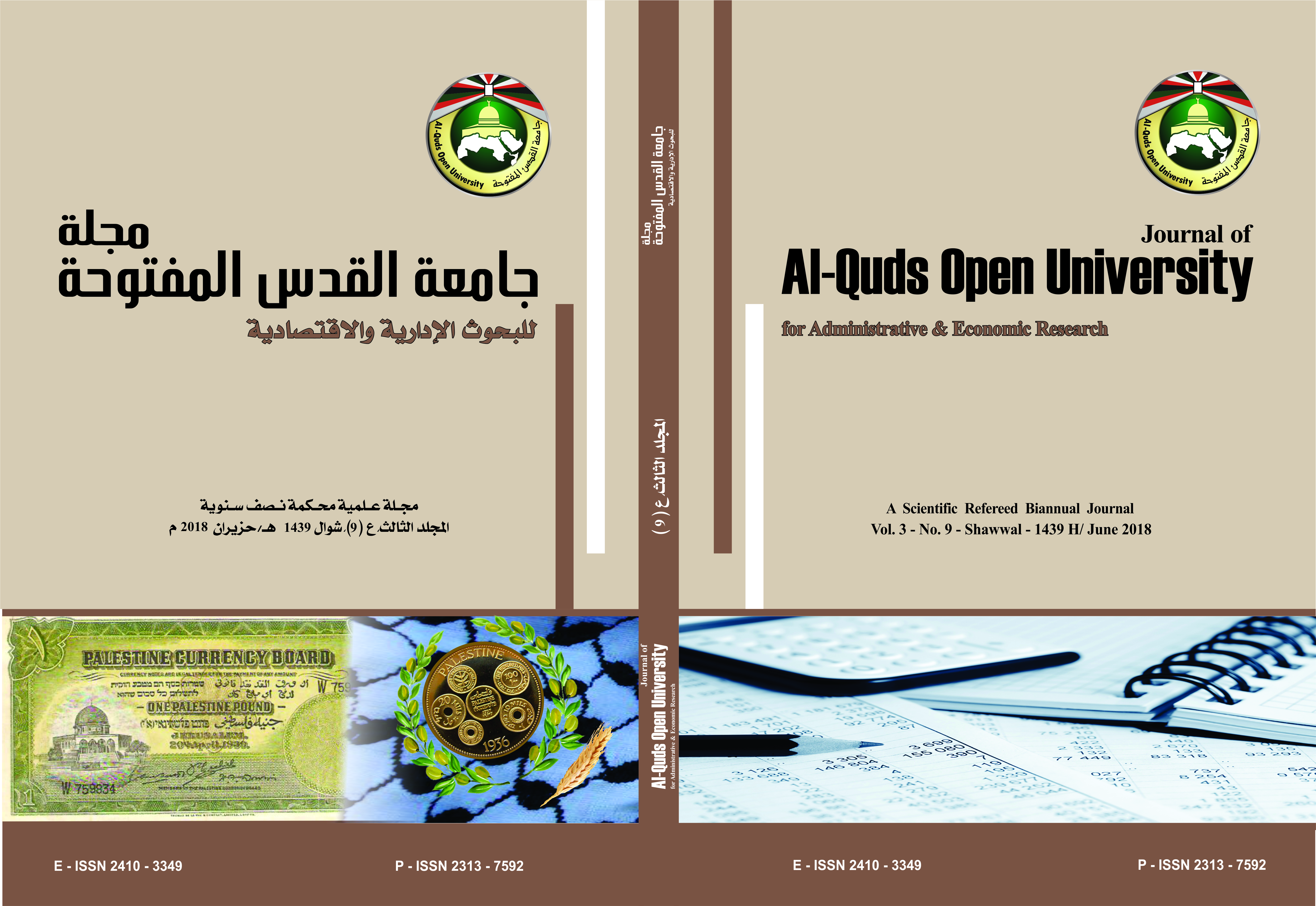The Effect of Ethical Marketing on the Loyalty of Customers among Clothing Stores in West Bank
Keywords:
Ethical Marketing, Customers’ Loyalty, Clothing Stores.Abstract
This study aimed at identifying the effect of ethical marketing on the loyalty of customers among clothing stores in West Bank. To achieve the objectives of the study, the descriptive analytical method was adopted through developing a questionnaire that consisted of six main areas to measure the dimensions of ethical marketing and customer loyalty. After proving the questionnaire to be reliable and valid, it was distributed on a random sample that consisted of customers of stores across the cities in West Bank. The sample included different age groups, different scientific levels, diverse cultures and different income levels. Total of (350) valid questionnaires were retrived and analyzed using the Statistical Package Program (SPSS) in oreder to test the hypotheses and analyze and discuss results. The results showed that the degree of some aspects of ethical marketing (integrity, respect, and harmlessness to customers) was high, while the degree of some other aspects ( accuracy, fairness, and the social responsibility) was moderate. The results also showed a statistically significant effect between ethical marketing and customers’ loyalty among clothing stores in Palestine. The study also showed that there were no statistically significant differences in the attitudes of the study sample memebers towards the reality of ethical marketing in clothing stores due to the variables of gender, social status, educational level, and income level. However, the results showed that there were significant differences in the attitudes of the sample members towards ethical marketing due to the variable of age, in favor of the older age category. In light of the findings of the study, the researcher recommended the adoption of ethical marketing by clothing stores with all its programs, operations, activities, services, and customers’ treatment, especially if shops desire to promote loyalty among their customers.
Downloads
Published
How to Cite
Issue
Section
License
- The editorial board confirms its commitment to the intellectual property rights
- Researchers also have to commit to the intellectual property rights.
- The research copyrights and publication are owned by the Journal once the researcher is notified about the approval of the paper. The scientific materials published or approved for publishing in the Journal should not be republished unless a written acknowledgment is obtained by the Deanship of Scientific Research.
- Research papers should not be published or republished unless a written acknowledgement is obtained from the Deanship of Scientific Research.
- The researcher has the right to accredit the research to himself, and to place his name on all the copies, editions and volumes published.
- The author has the right to request the accreditation of the published papers to himself.













